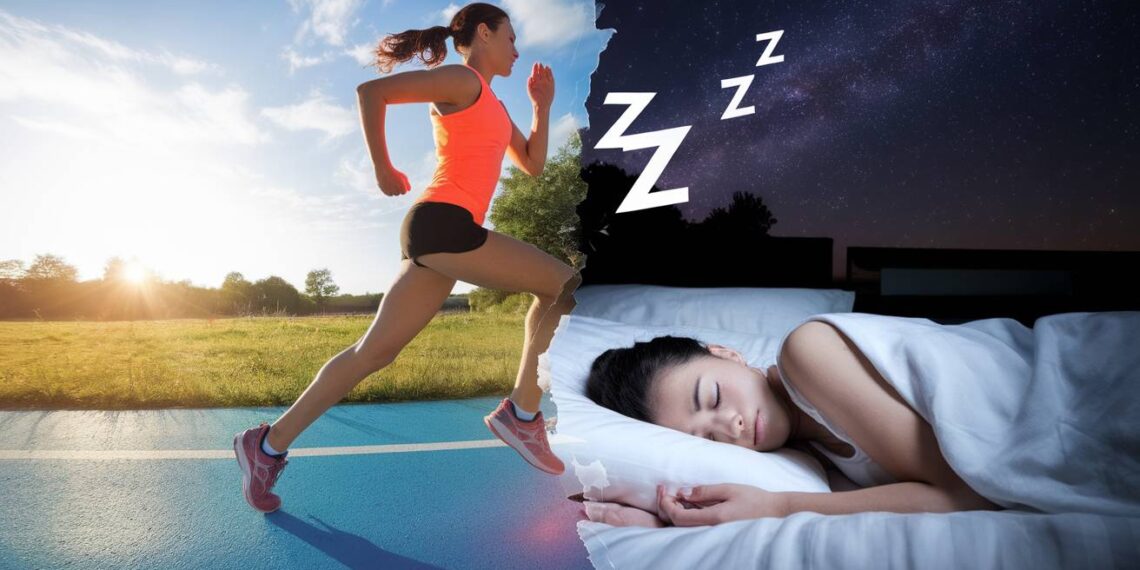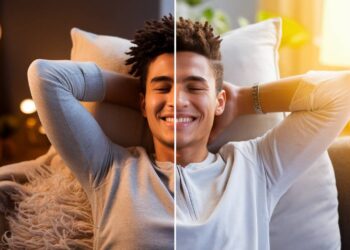Ever feel like balancing sleep and fitness is an Olympic feat? You’re not alone! Sleep and exercise often seem at odds—burning the midnight oil or skipping workouts to snooze feels like a coin toss between health and productivity. But here’s the magic: when they work together, they create the ultimate wellness formula. Whether you’re a gym enthusiast or just trying to feel less tired, understanding the delicate interplay between sleep cycles, fitness routines, and lifestyle habits can unlock higher energy, faster recovery, and better overall health. Ready to optimize your fitness journey by prioritizing rest as much as reps? Let’s dive in.
Main Key Takeaways
- Sleep and Fitness Harmony: Sleep restores muscles, sharpens mental focus, and boosts immunity, while exercise improves sleep quality by managing stress and enhancing body recovery.
- Impact of Sleep on Recovery: Deep NREM sleep is critical for muscle repair, while REM sleep strengthens cognitive and emotional health, both essential for performance.
- Factors That Influence the Balance: Lifestyle choices (like daily routines, diet, and stress) and environmental elements (like noise and lighting) directly impact the sleep-exercise relationship.
- Optimal Strategies: Incorporate a consistent sleep routine, tweak diets to include sleep-promoting foods, create a calming sleep environment, and avoid late-night tech use.
- Sleep Disorders & Fitness: Insomnia, sleep apnea, and restless leg syndrome disrupt fitness gains, but tailored exercise and seeking medical help can significantly improve results.
Understanding the Importance of Sleep and Fitness Balance
Getting sleep and exercise to play nice can transform your whole vibe. Whether you’re juggling work, raising little ones, tackling life post-50, or just love a good sweat, aligning sleep with fitness is like snagging the wellness jackpot. Knowing the magical dance between them can kickstart this harmony.
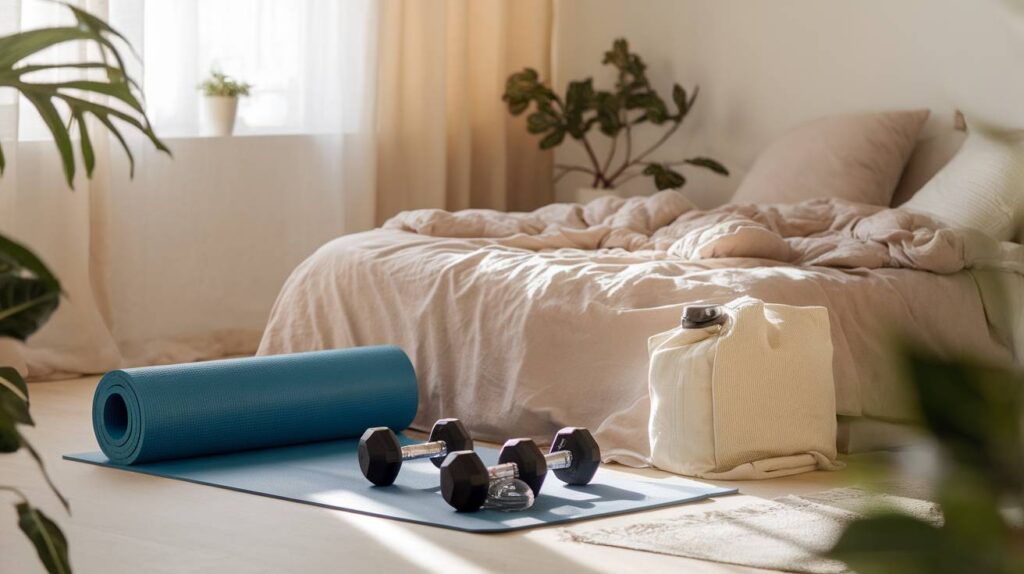
The Interplay between Sleep and Fitness
Sleep and fitness are besties with benefits. When you hit the hay right, your body gets its beauty rest, revamping and prepping for tomorrow’s hustle. Meanwhile, a solid workout puts you in the fast lane to dreamland by chilling you out, keeping your body clock in check, and amping up your health game.
| Factor | Effect on Sleep | Effect on Fitness |
|---|---|---|
| Exercise | Boosts sleep vibes, kicks insomnia | Builds those muscles, fuels that stamina |
| Restful Sleep | Powers up your physical prowess, speeds recovery | Lifts your mood, sharpens mental focus |
Impact of Sleep on Physical Performance and Recovery
Sleep isn’t just shuteye—it’s your body’s time to shine and re-energize. As you snooze, muscle tissues are doing their little fix-it dance, and energy is stashed away for later.
“Sleep is the golden chain that ties health and our bodies together.” – Thomas Dekker
- Restorative Processes: Deep sleep modes, like NREM, are the real MVPs for winding down. Growth hormone hits peak levels here, fueling tissue and muscle magic.
- Cognitive Function: A solid night’s sleep fine-tunes your brain skills, critical for acing workouts and smashing your daily grind.
- Immune System Support: Sleep’s like a booster shot for your immunity, keeping those germs at bay and helping your body bounce back (sleep immune system).
| Sleep Stage | Duration Per Night | Importance |
|---|---|---|
| Light Sleep | 50% | Eases you into dreamy slumber |
| Deep Sleep | 20% | Muscle tune-up, growth hormone chorus |
| REM Sleep | 20-25% | Brain boost, mood leveling |
For the sweet spot between sleep and fitness, zoom in on things that sway this balance. Poke around our take on exercise and sleep, meditation for sleep, and diet and sleep to get the full scoop.
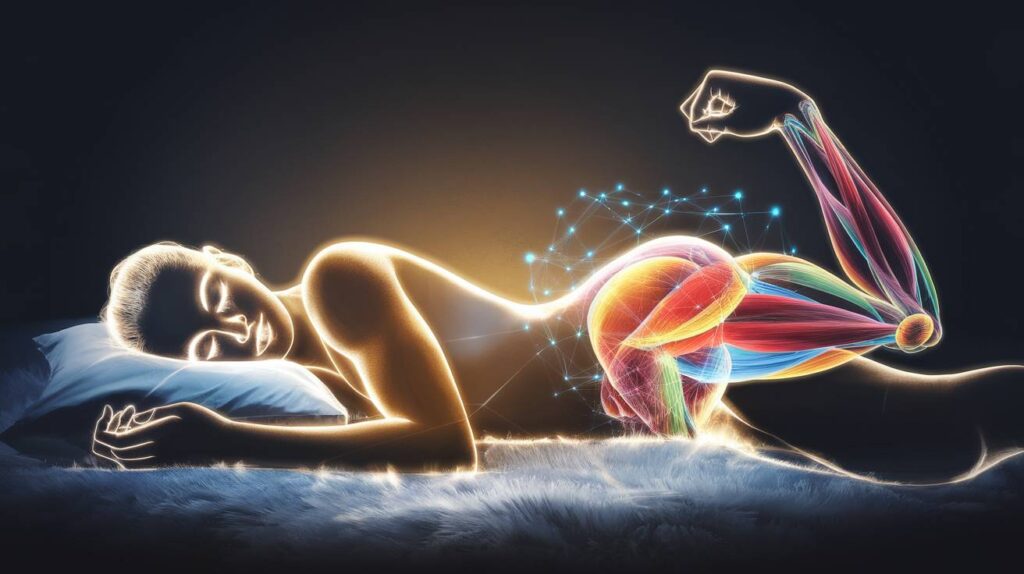
Factors Influencing Sleep and Fitness Balance
Getting the right mix of sleep and exercise is like finding the sweet spot in your favorite recipe. Nail it, and you’re golden. Miss it, and, well… it might not be so tasty. Let’s explore what stirs the pot in this balancing act.
Lifestyle Factors
Our daily choices make up the foundation of our sleep and exercise harmony. The real deal? Simple changes pack a punch:
- Routine and Consistency: A solid sleep routine hand-in-hand with workout flow? Think PB&J for your health.
- Daily Activity Levels: Break a sweat regularly, and not only will your body holla back with better fitness, but your sleep will thank you too. Couch potato vibes? Yeah, not so much.
- Stress Management: Stress can be like that unexpected plot twist—throws a wrench in your sleep and fitness goals. Try a little meditation for sleep or some sweat therapy to mellow out.
- Nutrition: What you munch on ties directly to your snooze and strength levels. Curious? Crunch through more on diet and sleep if your stomach’s growling for details.
Peep this table to see how different lifestyle choices steer your sleep and sweat sessions:
| Lifestyle Factor | Sleep Impact | Fitness Impact |
|---|---|---|
| Consistent Routine | Sleep quality gets a boost | Workouts feel more effective |
| Daily Activity Levels | Longer, restful slumber | Improved health all-around |
| Stress Management | Fewer nighttime interruptions | Clocks shorter recovery time |
| Balanced Nutrition | Promotes restful z’s | Keeps energy levels high |
Environmental Factors
The vibes where you sleep and flex matter big time. Here’s what you should keep an eye on:
- Sleep Environment: A super chill sleep-friendly zone can really level up your rest game. Play with that room temperature, tweak the lights, and kick out the noise.
- Fitness Environment: Where you work out can make a world of difference—ever try sweating it out in a dark, cramped space? Exactly.
- Tech Usage: Nighttime screen binges can wage war on your sleep. Find a little time-out with tech using best sleep apps to chill.
Here’s how these elements play out:
| Environmental Factor | Sleep Impact | Fitness Impact |
|---|---|---|
| Room Temperature | Cozy temps mean better sleep | No biggie for workouts |
| Lighting | Dark setup is a sleep win | Bright spaces increase gym bounce |
| Noise Levels | A quiet zone equals heavenly sleep | Pumping tunes can uplift exercise |
| Tech Usage | Less screen—more sweet dreams | Fitness apps to plan the burn |
Individual Health Conditions
Everyone’s body rolls a little differently. Here are some health bits that could shift your balance:
- Chronic Illnesses: Stuff like diabetes or heart troubles can tweak your nightly rest and physical endurance. A chat with the doc? Often a good idea.
- Mental Health: If you’re feeling anxious or low, your sleep and move mojo might take a hit. Get the scoop on how sleep affects mental health.
- Age: As birthdays stack up, sleep and strength routines might need a remix. The older we get, the more tweaking might be on tap.
Check out how health conditions mix up sleep and activity:
| Health Condition | Sleep Impact | Fitness Impact |
|---|---|---|
| Chronic Illnesses | Might wake you up at night | Could hamper physical activity |
| Mental Health Issues | Sleep patterns may go haywire | Often cuts down on workout energy |
| Age-Related Changes | Alters sleep length/quality | Calls for custom exercise plans |
Taking these factors into account can get you closer to syncing sleep and fitness like a seasoned DJ spinning the decks. Tinker with your routine, make your space friendlier, and know your limits for top-notch results. Need more tips? Check out links like stress management for sleep and exercise and sleep for a deeper dive.
Strategies for Achieving Optimal Sleep
Getting the right amount of shut-eye is like finding the sweet spot for your well-being. A few tricks up your sleeve can help make bedtime a dream.
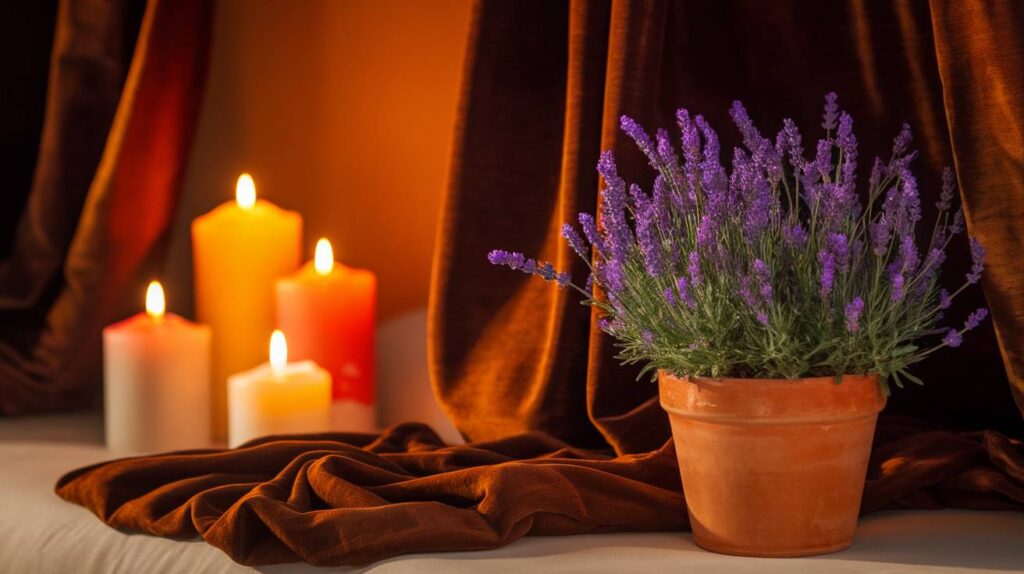
Creating a Chill Sleep Zone
When your room feels cozy, catching Zs becomes a breeze. Here’s the scoop on setting up the perfect sleep chamber.
Essentials for a Sleepy Haven:
- Temperature: Keep your room between 60-67°F for that cool, snug feeling.
- Lights Out: Blackout curtains are your friends. Small nightlights keep it dim.
- Quiet Please: Drown out noise with earplugs or a trusty white noise machine.
- Bedding: Get yourself comfy bedding. Check out best mattresses for health if your bed’s feeling less than dreamy.
Sticking to a Regular Sleep Routine
Getting into a bedtime groove helps your body’s clock tick just right. Keeping things predictable makes sleep a cinch.
| Activity | Recommended Time |
|---|---|
| Bedtime | 10:00 PM – 11:00 PM |
| Wake-up Time | 6:00 AM – 7:00 AM |
| Evening Wind-down | 1 hour before bedtime |
| Limit Naps to | 20-30 minutes |
Having a regular routine teaches your body when to hit the hay and when to rise. For more deets, visit sleep routine on how to nail it.
Chilling with Relaxation Techniques
Calm down the brain and body with some relaxation before bed.
Ways to Unwind:
- Meditation: Chill out your mind. Check out meditation for sleep.
- Deep Breathing: Stress-busting breaths that ease your mind.
- Yoga: Gentle stretches melt away stress. See yoga for sleep to start stretching.
- Aromatherapy: Try using essential oils for sleep like lavender to mellow out.
Getting these sleep jams going can seriously up your sleep game. Curious for more tips? Have a look-see at our pieces on sleep hygiene and stress management for sleep. Sweet dreams!
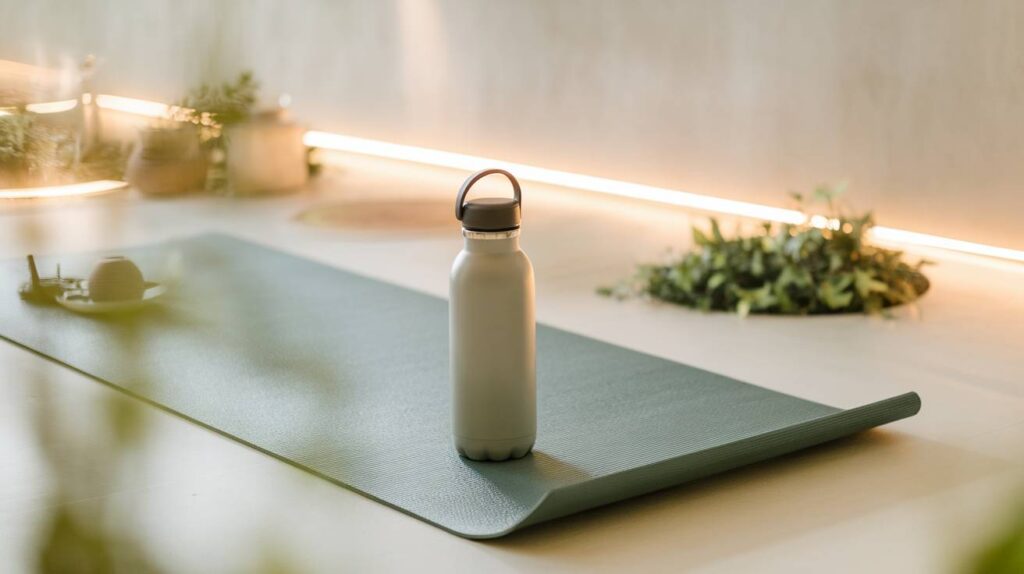
Boosting Your Fitness for Better Snoozing
Getting the right mix of exercise and sleep is like the secret sauce for feeling awesome. Working out regularly can make your sleep better, so you wake up feeling refreshed and ready to rock the day.
“Exercise not only changes your body, but it also changes your mind, attitude, and sleep quality.”
How Regular Exercise Can Help You Sleep Like a Baby
Exercise isn’t just about getting fit; it’s also your ticket to dreamland. Check out how breaking a sweat can make your snooze time better:
- Better Sleep Hours: Moving your body regularly helps you crash longer and harder, giving you more downtime to recharge.
- Hardcore Rest: Workouts encourage those deep sleep stages, crucial for getting those muscles back in gear.
- Bye Bye, Insomnia: Consistent exercise can kick insomnia’s butt, making it easier to drift off and stay in dreamland.
- Less Stress, More Zzz’s: Being active chips away at stress and anxiety, setting you up for a calm and cozy sleep.
Want more on how getting active helps you hit the hay? Check out our exercise and sleep section.
The Best Workouts to Help You Catch More Z’s
While any workout’s a good workout when it comes to sleep, some really stand out:
- Cardio Kings: Jump into activities like running, swimming, or power walking—they get your heart doing its thang and lead the way to better rest.
- Lift, Bro!: Pumping iron or doing resistance rounds not only shapes muscles but also boosts the amount and quality of your sleep.
- Mindful Moves: Yoga and some good old stretching ease muscle tension and help you relax, which is golden for sleeping soundly. Peek at our yoga for sleep guide for moves that’ll get you dozin’.
- Take It Slow with Tai Chi: This gentle workout mixes easy movements with a bit of meditation, making it stellar for snooze improvement.
When to Sweat It Out for the Best Shut-Eye
Timing your workouts right can make a world of difference in your sleep game. Here’s the lowdown:
| Time of Day | Perks | Keep in Mind |
|---|---|---|
| Morning | Kickstarts your mood and energy | Might be tough if you’re not a morning person |
| Afternoon | Perks up focus and calms you down | Perfect for a midday pick-me-up |
| Pre-Dinner | Lowers stress | Steer clear of intense workouts close to bedtime |
| Nighttime | Chill exercises like yoga to wind down | Stay away from high-intensity sessions |
For the best bedtime, try not to go all-out with your workout within a few hours before you hit the hay. Want more tricks for a winning sleep setup? Peek at our sleep routine article for the inside scoop.
By keeping up with regular workouts and timing them just right, you can sleep like a champ. This balance between getting fit and catching Z’s is your ticket to a healthier, more energized you!
Nutrition and Sleep
Getting the connection between what you chow down on and how well you snooze might just be the golden ticket for feeling fantastic. It’s a big deal—because your plate can totally put your pillow time on the right track!
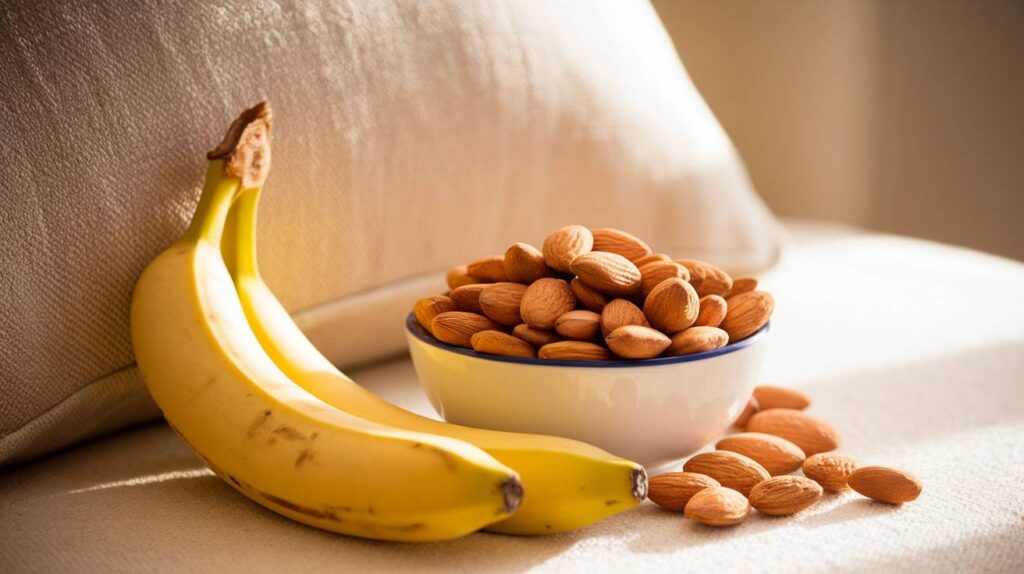
How Diet Affects Sleep Patterns
Certain grub can make all the difference when it comes to catching Z’s. Big, spicy dinners right before bed? Bad move—they’ll probably keep you up. But chomping on balanced bites? Now that’s the recipe for hitting dreamland without a hitch.
| What You Eat | How It Hits Your Snooze Button |
|---|---|
| Caffeine | Might keep you tossing |
| Alcohol | Knocks sleep quality down |
| Sugary Snacks | Could bump your snoozing |
| Greasy, Big Meals | Stomach’s nightmare |
Foods to Promote Better Sleep
Let’s talk food magic! There’re eats out there packing nutrients that tuck you in nice and snug. Think of them as nature’s little sleep helpers. Load up on these and you might just wake up ready to take on the world—or at least your breakfast.
| What to Munch | What’s Inside | Why It Matters |
|---|---|---|
| Turkey | Tryptophan | Helps you hit the hay |
| Almonds | Magnesium | Totally chills your muscles |
| Dairy Stuff | Calcium | Keeps your sleep buddy, melatonin, in check |
| Bananas | Vitamin B6 | Helps with sleepy serotonin |
| Fish That’s Fatty | Vitamin D | Keeps your sleep rhythm groovy |
Got a hankering for more info? Meander over to our diet and sleep write-up for the full scoop!
Timing of Meals for Improved Sleep Quality
When you fork up can matter as much as what’s on the plate. Good grub timing plays a big role in keeping you out of the toss-and-turn zone. Eat right on time and you could be floating in dreamland quicker than you think.
| Meal Time Stuff | What Happens When You Snooze |
|---|---|
| Early Dinner (2-3 hours before bed) | Gives your belly a breather for better rest |
| Snacking Late | Leaves you with a restless night |
| Caffeine Jolts | Worth dropping it 6 hours before Z-time |
Need more sleep tips? Swing by our sleep hygiene section for all things dreamy.
Figuring out how chowtime and sleep intertwine might just give you that wellness boost you’ve been dreaming of. Tweak the way you fuel up and catch those Z’s for a life that’s both fit and fabulous. Cheers to better nights and brighter days!
Technology and Sleep
Who would’ve thought? Tech isn’t just for making videos of your cat doing backflips. It’s a sneaky little rascal that messes up your snooze time, too. Let’s crack open what’s going on and figure out how to wrangle our gadgets before they wreck our sweet dreams.
Impact of Technology on Sleep
Your night owl habits with phones or tablets might not be just about catching up on memes. That blue light coming off your screens? It’s a sleep-stealer! This kind of light throws off melatonin—a fancy hormone that’s like your internal sleep DJ, spinning tracks for bedtime.
| Factor | Impact on Sleep |
|---|---|
| Blue Light | Messes with melatonin production |
| Social Media | Ramps up stress and doomscrolling blues |
| Notifications | Jars you awake like a clumsy roommate |
| Late-night Work | Messes up your body’s sleep clock |
Knowing how these devices steal your zzz’s can help us pull the plug on those bad habits before they pull us out of a good night’s rest.
Using Technology for Better Sleep
Yep, tech can be a sleep thief, but some gadgets are Team Sleep. There’s some cool stuff out there to help us catch those elusive zzz’s.
- Sleep Trackers: Think of these gizmos as your personal sleep detectives. They spy on your sleep patterns and spill the beans. Curious about which is top-dog? Check our guide on the best sleep trackers.
- White Noise Apps: These apps bring the soothing mumblings of nature right to your ears to drown out your snoring partner.
- Meditation Apps: These are like chill pills for your brain, guiding you through the art of relaxation. Want more zen in your life? Peek at our bit on meditation for sleep.
Setting Technology Boundaries for Improved Sleep
Look, tech’s fun. But when it comes to snoozin’, you gotta lay down the law. Here’s the playbook:
- Screen Time Limitations: Power down those screens, buddy, at least an hour before lights out.
- Night Mode: Go all Dr. Jekyll with your device settings and block that blue light at night.
- Notification Control: Silence those pesky dings and bloops that want to ruin your beauty sleep.
- Designated Sleep Areas: Your bedroom should be a no-tech chill zone. Just say no to digital squatters!
Want to trick out your snooze sanctuary? Dive into our piece on bedroom optimization for sleep.
Striking the right balance between tech use and sleep is totally possible, and it has the potential to tune your life into a lovely symphony of peaceful nights and lively days. For even more wisdom on getting your sleep groove on, check out our other musings on sleep and wellness.
Sleep Disorders and Fitness
Getting to grips with how sleep disorders and fitness are linked can really help folks find their groove between catching those Z’s and getting sweaty in the gym.
Common Sleep Disorders and Their Impact on Fitness
There are a bunch of sleep issues that can mess up your chance to rest, throwing a wrench into your workouts and overall good vibes.
| Sleep Disorder | Description | Impact on Fitness |
|---|---|---|
| Insomnia | Tossing and turning all night long | Less pep in your step, slower muscle healing |
| Sleep Apnea | Breathing hits the pause button during sleep | Worn-out faster, dragging through the day |
| Restless Leg Syndrome | Gotta keep those legs moving | Rough night’s sleep, less workout potential |
| Narcolepsy | Dozing off when you least expect it | Hard to concentrate, wacky sleep timings |
These pesky problems can mess up your exercise groove and stretch out those sore muscle days, making it a challenge to find that sleep and fitness rhythm.
Seeking Professional Help for Sleep Issues
Getting advice from a pro is crucial when sleep woes won’t buzz off. Docs can dish out personalized tips and game plans like:
- Sleep Studies: Keeping tabs on your snooze habits in a clinic.
- Cognitive Behavioral Therapy for Insomnia (CBT-I): Tackling those nagging thoughts that mess with your sleep.
- Medications: The right pills for the right sleep troubles.
For a more chill route, peep at natural sleep helpers and meditation tricks for sleep.
Integrating Fitness Routines with Sleep Disorder Management
Tweaking workout plans can help tackle sleep-problems head-on. Here’s how:
- Exercise Timing: Go for those mid-afternoon workouts – they’ll help you sleep like a baby. Need deets? Check out our piece on exercise and sleep.
- Relaxation Techniques: Mix in some yoga for snooze and stress-busting for better sleep to ease your mind and unwind.
- Consistency: Keeping a steady mix of exercise and snooze routine helps keep your body’s inner clock ticking smoothly.
Shifting your workout style and reaching out to the pros can pave the way for less tossing, more muscle gain, and an all-around healthier life.
Main Tips
- Maintain a consistent sleep/workout routine.
- Prioritize deep sleep with relaxation methods like yoga or breathing exercises.
- Avoid heavy meals and caffeine close to bedtime.
- Stick to cardio and resistance training for enhanced sleep.
- Create a tech-free bedroom for optimal rest.
Conclusion
Balancing sleep and fitness isn’t just key to a healthier life—it’s essential to peak performance, better moods, and long-lasting vitality. When we sleep well, our bodies heal, recover, and store energy, paving the way for fitness gains. Likewise, regular exercise promotes deeper, more restorative sleep, reduces stress, and aligns your biological rhythm. The dynamic interplay between these two pillars shows that they’re not independent but deeply intertwined.
By addressing factors like sleep environments, nutrition, and timing your workouts, you can supercharge your results. Be mindful of obstacles like tech overuse or health conditions, as these can derail your progress. And for those facing sleep disorders, combining fitness adjustments with professional support can act as a powerful tool for recovery. Bottom line: sleep and fitness, when synchronized, create a lifestyle that feels energized, focused, and balanced. Embrace the power of this blend, and let your body and mind thrive in harmony.
FAQs on Sleep and Fitness Balance
1. How does sleep impact fitness performance and recovery?
Sleep aids muscle repair, cognitive sharpness, and immunity—all crucial for workout recovery and improved performance. Lack of sleep can slow muscle growth and reduce energy.
2. What exercises promote better sleep quality?
Cardio, resistance training, yoga, and tai chi can enhance sleep by reducing stress, regulating your body clock, and encouraging restorative deep sleep.
3. How does poor sleep affect workout results?
Inconsistent or insufficient sleep slows muscle recovery, reduces physical stamina, and impairs focus, negatively impacting your fitness outcomes.
4. What changes can I make to improve both sleep and fitness?
Stick to consistent bedtime and workout routines, eat sleep-friendly foods like almonds or bananas, practice relaxation techniques before bed, and avoid screens at night.
5. Can sleeping too little lead to weight gain or low energy?
Yes. Poor sleep increases cortisol levels and disrupts metabolism, which can cause weight gain. It also reduces energy and motivation for exercise.
Resources
- CDC on Sleep and Fitness: Government guidelines on sleep importance.
- National Sleep Foundation: Sleep resources, including topics on fitness correlation.
- American Council on Exercise: Data and tips on how exercise promotes better sleep.
- Harvard Medical School Sleep Studies: Research on sleep, cognitive health, and performance.
Final Thoughts
Mastering the balance of sleep and fitness is the gateway to a more fulfilled, healthier, and productive life. These two pillars of wellness feed into each other—regular exercise helps you sleep better, and good sleep recovers and energizes you for better workouts. By fine-tuning lifestyle factors like sleep routine, nutrition, and workout timing while addressing obstacles like stress or tech distractions, you unlock your full potential. This isn’t just about better sleep or fitness alone—it’s about creating a lifestyle where balance leads to transformation. Start small, stay consistent, and enjoy the energizing ripple effects in your life.
Recommended Products
- Weighted Blanket: Promotes deeper sleep by reducing anxiety.
- Blue-Light Blocking Glasses: Protects melatonin production for better rest.
- Yoga Mat for Sleep Stretches: Perfect for pre-bed relaxation.
- Essential Oil Diffuser: Lavender oils for a calming sleep environment.
- Advanced Sleep Tracker: Tracks sleep patterns and offers insights for improvement.

